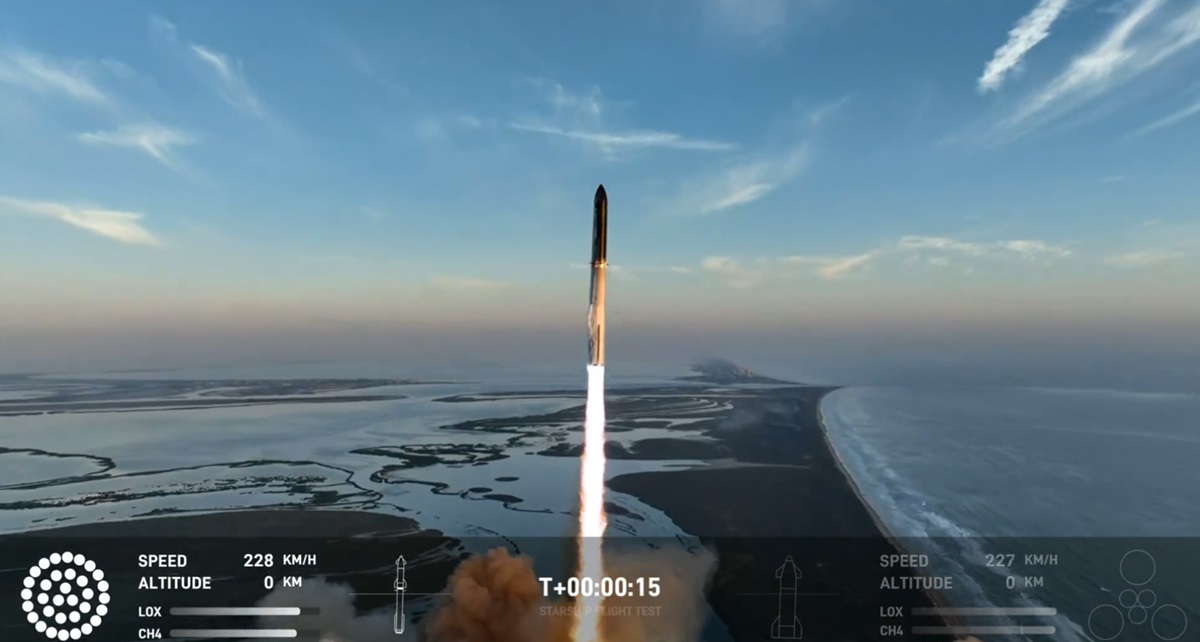SpaceX lost Starship 9 minutes after liftoff and the Super Heavy rocket exploded during its descent into the Gulf of Mexico

As expected, SpaceX made a second attempt to launch the Starship rocket system. This time the mission was more successful than in April.
Here's What We Know
SpaceX launched Starship 5 minutes after the launch window opened. The 122-metre rocket system flew in from the Starbase spaceport in Texas. This time, the separation of the two stages was successful, and the spacecraft continued the flight on its own. Moreover, it started its engines even before separation from the Super Heavy.
Liftoff of Starship! pic.twitter.com/qXnGXXZP5k
- SpaceX (@SpaceX) November 18, 2023
However, after separation, problems began to arise. Firstly, nine minutes after liftoff, SpaceX lost contact with Starship. The company later said that a self-destruct command was given after that.
Stage separation! pic.twitter.com/PipaCW1PDT
- SpaceX (@SpaceX) November 18, 2023
Things didn't go according to plan with the 72-metre Super Heavy rocket booster either. After separation, which took place about 3 minutes after launch, the rocket began its descent into the Gulf of Mexico. However, during its descent, it exploded. By the way, this time all of the Raptor's engines went off.
Starship, despite the loss of communication, continued the flight and finally reached space. The ship climbed to an altitude of 148 kilometres, while the boundary of space is at an altitude of 100 kilometres. Starship was able to reach a speed of 24,000 kilometres per hour.
Congratulations to the entire SpaceX team on an exciting second integrated flight test of Starship!
- SpaceX (@SpaceX) November 18, 2023
Starship successfully lifted off under the power of all 33 Raptor engines on the Super Heavy Booster and made it through stage separation pic.twitter.com/JnCvLAJXPi
NASA plans to use Starship on missions to the Moon and Mars, while SpaceX wants to deliver satellites into orbit. Starship is capable of sending 150-250 tonnes of cargo into orbit, which is 8.5-14 times more than the Falcon 9 rocket.